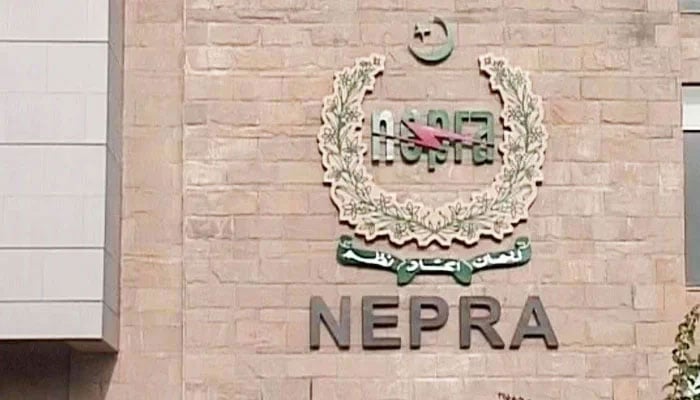Nepra reviews new distribution code to transform power grid
Code applies to Distribution Network Operators (DNOs), power generators, and bulk power consumers
ISLAMABAD: The National Electric Power Regulatory Authority (Nepra) is reviewing the newly drafted Distribution Code 2024, a comprehensive regulatory framework aimed at enhancing the reliability, safety, and efficiency of Pakistan’s electricity distribution system.
The code applies to Distribution Network Operators (DNOs), power generators, and bulk power consumers with connected loads exceeding 1 megawatt (MW). This reflects a broader shift toward market-based energy reforms.
The updated code introduces detailed guidelines for system operations, focusing on improving communication protocols, ensuring system restoration after outages, and implementing enhanced safety measures.
NEPRA has invited stakeholders and interested parties to provide their feedback on the draft within a month, emphasizing the importance of collaborative input to finalize the framework.
This draft, submitted by ex-Wapda distribution companies (XW-Discos), aligns with Nepra Licensing (Distribution) Regulations 2022 and the Competitive Trading Bilateral Contract Market (CTBCM) design. It reflects significant changes in the regulatory, structural, and technological landscape of Pakistan’s electricity sector.
The draft outlines protocols for restoring power after system shutdowns, emphasizing the maintenance of black start capabilities. DNOs are required to notify the System Operator of any changes to their black start facilities, ensuring effective coordination during outages. The framework also mandates that operational incidents affecting the distribution system be reported initially through verbal communication, followed by written documentation. In cases involving multiple users or operators, joint investigations will be conducted to identify and resolve issues collaboratively. Safety is a central focus of the updated code, which requires DNOs to maintain approved Safety Management Systems to protect personnel working on high-voltage equipment. These protocols aim to reduce risks at connection points and ensure compliance with stringent safety standards. Additionally, the code introduces systematic testing and monitoring requirements to maintain the safety and performance of distribution systems. The guidelines also address load management during emergencies, establishing clear procedures for equitable load shedding and effective commercial load allocation. By improving system monitoring and coordination, the code seeks to reduce disruptions and provide a more reliable energy supply to consumers. Nepra has urged all stakeholders, including power producers, DNOs, and bulk power consumers, to thoroughly review the draft and provide their input. This participatory approach is designed to ensure that the regulatory framework is practical, effective, and aligned with the evolving demands of the electricity sector. Once approved, the Distribution Code 2024 will serve as a cornerstone for ongoing energy reforms, driving the transition to a safer, more efficient, and resilient power distribution system across Pakistan.
-
 Extreme Cold Warning Issued As Blizzard Hits Southern Ontario Including Toronto
Extreme Cold Warning Issued As Blizzard Hits Southern Ontario Including Toronto -
 Lana Del Rey Announces New Single Co-written With Husband Jeremy Dufrene
Lana Del Rey Announces New Single Co-written With Husband Jeremy Dufrene -
 Ukraine-Russia Talks Heat Up As Zelenskyy Warns Of US Pressure Before Elections
Ukraine-Russia Talks Heat Up As Zelenskyy Warns Of US Pressure Before Elections -
 Lil Nas X Spotted Buying Used Refrigerator After Backlash Over Nude Public Meltdown
Lil Nas X Spotted Buying Used Refrigerator After Backlash Over Nude Public Meltdown -
 Caleb McLaughlin Shares His Resume For This Major Role
Caleb McLaughlin Shares His Resume For This Major Role -
 King Charles Carries With ‘dignity’ As Andrew Lets Down
King Charles Carries With ‘dignity’ As Andrew Lets Down -
 Brooklyn Beckham Covers Up More Tattoos Linked To His Family Amid Rift
Brooklyn Beckham Covers Up More Tattoos Linked To His Family Amid Rift -
 Shamed Andrew Agreed To ‘go Quietly’ If King Protects Daughters
Shamed Andrew Agreed To ‘go Quietly’ If King Protects Daughters -
 Candace Cameron Bure Says She’s Supporting Lori Loughlin After Separation From Mossimo Giannulli
Candace Cameron Bure Says She’s Supporting Lori Loughlin After Separation From Mossimo Giannulli -
 Princess Beatrice, Eugenie Are ‘not Innocent’ In Epstein Drama
Princess Beatrice, Eugenie Are ‘not Innocent’ In Epstein Drama -
 Reese Witherspoon Goes 'boss' Mode On 'Legally Blonde' Prequel
Reese Witherspoon Goes 'boss' Mode On 'Legally Blonde' Prequel -
 Chris Hemsworth And Elsa Pataky Open Up About Raising Their Three Children In Australia
Chris Hemsworth And Elsa Pataky Open Up About Raising Their Three Children In Australia -
 Record Set Straight On King Charles’ Reason For Financially Supporting Andrew And Not Harry
Record Set Straight On King Charles’ Reason For Financially Supporting Andrew And Not Harry -
 Michael Douglas Breaks Silence On Jack Nicholson's Constant Teasing
Michael Douglas Breaks Silence On Jack Nicholson's Constant Teasing -
 How Prince Edward Was ‘bullied’ By Brother Andrew Mountbatten Windsor
How Prince Edward Was ‘bullied’ By Brother Andrew Mountbatten Windsor -
 'Kryptonite' Singer Brad Arnold Loses Battle With Cancer
'Kryptonite' Singer Brad Arnold Loses Battle With Cancer




